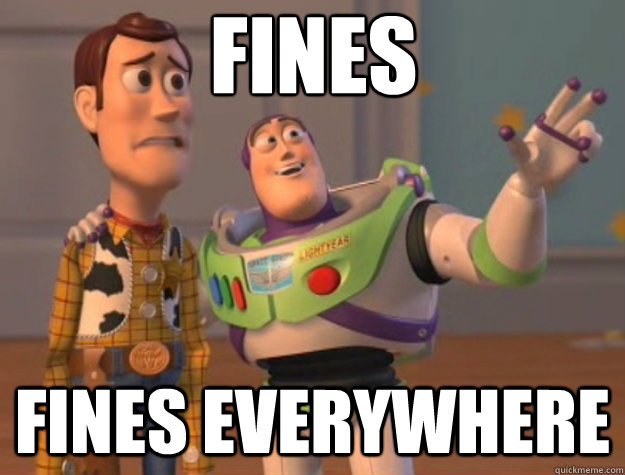A bi-partisan bill working its way through Congress could drastically change how copyright claims are processed, and would create a system to impose up to $30,000 in fines on anyone who shares protected material online.
 In other words, the Congress wants to make it easier to sue people who send a meme or post images that they didn’t create themselves, essentially a giveaway to lawyers who sue unsuspecting suckers for a living.
In other words, the Congress wants to make it easier to sue people who send a meme or post images that they didn’t create themselves, essentially a giveaway to lawyers who sue unsuspecting suckers for a living.
Several memes have been used to promote celebrities endorsing keto pills on Facebook and Native ads, as FamilyFoodandTravel.com reported several weeks ago.
The Senate Judiciary Committee last week approved the “Copyright Alternative in Small-Claims Enforcement Act of 2019,” which “creates a voluntary small claims board within the Copyright Office that will provide copyright owners with an alternative to the expensive process of bringing copyright claims, including infringement and misrepresentation …. in federal court,” according to the Copyright Alliance.
“This new board, called the Copyright Claims Board (CCB), would allow recovery in each case of up to $30,000 in damages total, with a cap of $15,000 in statutory damages per work infringed,” according to the alliance, an advocacy group for the copyright industry.
Critics contend the CCB created would essentially provide a way for copyright trolls to target individuals or small businesses to secure five-figure default judgements for innocent mistakes. Put another way, someone who shares memes they didn’t make could be on the hook for $30,000 in fines from folks who make a living from copyright lawsuits.
A petition on ActionNetwork.org opposing the CASE Act explains:
Have you ever shared a meme that you didn’t make? Or downloaded a photo you saw on social media? If Congress has its way you could soon get slapped with a $15,000 fine by copyright trolls – with no chance of appeal – just for doing normal stuff on the internet.
These trolls buy up copyrights with the sole intent of sending out mass threats and lawsuits to harvest settlements. Now, a dangerous new bill called the Copyright Alternative in Small Claims Enforcement Act is sailing through Congress to make it easier for everyone from trolls to Hollywood producers to sue you. …
In recent years, federal courts have made it easier for regular people to defend themselves from frivolous lawsuits by trolls. But the CASE Act would create a separate, industry-friendly system for copyright claims to $30,000, with no option of appeal.
The Electronic Frontier Foundation reported when the legislation was first introduced in 2017 that those pushing for the bill mostly include photographers and other visual artists looking for a cheaper alternative to federal courts to pursue claims, which can be expensive.
But the reality is the CASE Act would significantly lower many of the legal hurdles that protect citizens from overzealous copyright lawyers in a variety of ways, from allowing claims for works that aren’t registered, to the ability to unmask alleged infringers without the same standards as federal courts, the power for the CCB to create its own rules, limited due process for claims below $5,000, and an “opt-out” approach that can be confusing for folks who can’t afford expensive lawyers.
The CASE Act also allows claimants to collect fines without showing actual harm from a copyright violation, and leaves those trapped in the system with little recourse.
“It’s true that federal litigation for small-dollar-value disputes generally isn’t practical. The federal courts impose costly, sometimes unnecessary burdens on nearly all who use them. But much of that expense comes from procedures that promote fairness, established and refined through years of use in all types of cases, not copyright infringement suits alone,” EFF reports.
“Creating a parallel track that allows copyright holders to dispense with those procedures as a privileged category of litigants just doesn’t make sense.”
“It lacks meaningful opt-in consent for all parties, structural safeguards against abuse, and legal accountability through a right of appeal. The bill would allow an unappealable tribunal to assign damages of up to $30,000, or nearly half the income of the average American household. A tribunal with that kind of punitive power must be accountable. The system envisioned by the CASE Act is not,” said Meredith Rose, counsel for Public Knowledge, a public interest nonprofit that promotes open internet.
“Moreover, we are deeply disturbed by the lack of process surrounding the consideration of this bill. The Senate Judiciary Committee passed the bill today without any hearings on its content, and without any opportunities for all stakeholders to voice their concerns. For any bill — let alone one that could drive the average American household into bankruptcy — this lack of transparency is inexcusable.”
The CASE Act is now awaiting a vote before the full Senate.
Leave a Comment
COMMENTS POLICY: We have no tolerance for messages of violence, racism, vulgarity, obscenity or other such discourteous behavior. Thank you for contributing to a respectful and useful online dialogue.